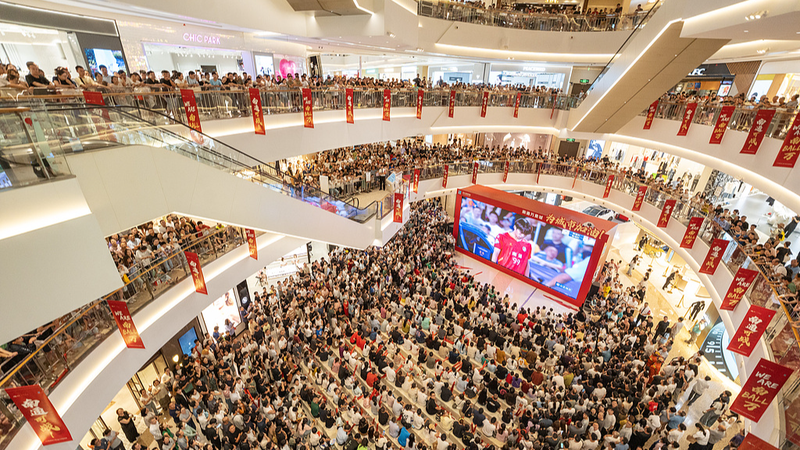The Chinese mainland's consumption landscape is undergoing a seismic shift. Gone are the days when spending peaked only during holiday seasons. Today, everything from leisurely park visits and shopping sprees to vibrant night markets and electrifying music festivals has become a core pillar of growth, with consumption replacing exports and investment as the economy's new engine.
A surprisingly powerful catalyst in this transformation is the Jiangsu Provincial Urban Football League, colloquially known as Su Chao. What began as an amateur competition has exploded into a cultural phenomenon, regularly drawing 30,000 to 50,000 fans to each match. Post-game buzz is just as intense online, with local delicacies becoming digital breakout stars: searches for Nanjing salted duck jumped 74% after Nanjing's June 1 win, while searches for Nantong breakfast soared by 367% following Nantong's victory over Taizhou.
It is not just food. Travel data from Qunar shows hotel bookings in Jiangsu from May to August climbed 21% compared to last year's regular season. Cities are doubling down on immersive experiences—Taizhou's Jiangyan district, for instance, launched a summer night food carnival on July 8. With extended weekend hours synced to Su Chao fixtures, music festivals and Chinese electronic music nights have been pulling in over 20,000 visitors per day.
From traditional home renovations giving way to smart-home makeovers, to children clamoring for the latest Labubu plush monster elf, consumer habits are more varied and voracious than ever. As policymakers and market forces converge on domestic demand, these local stories offer a data-driven glimpse into the Chinese mainland's next growth chapter.
Could grassroots sports leagues and night-time economies become the blueprint for other regions hungry for growth? For now, the numbers and the crowds say the future of consumption is already here.
Reference(s):
Domestic demand takes center stage in China's next growth chapter
cgtn.com




